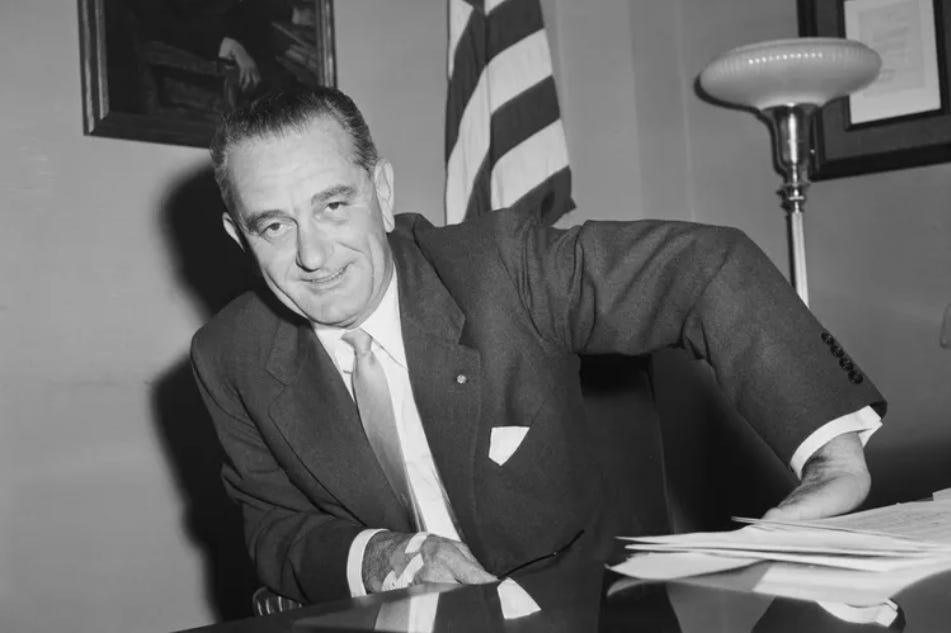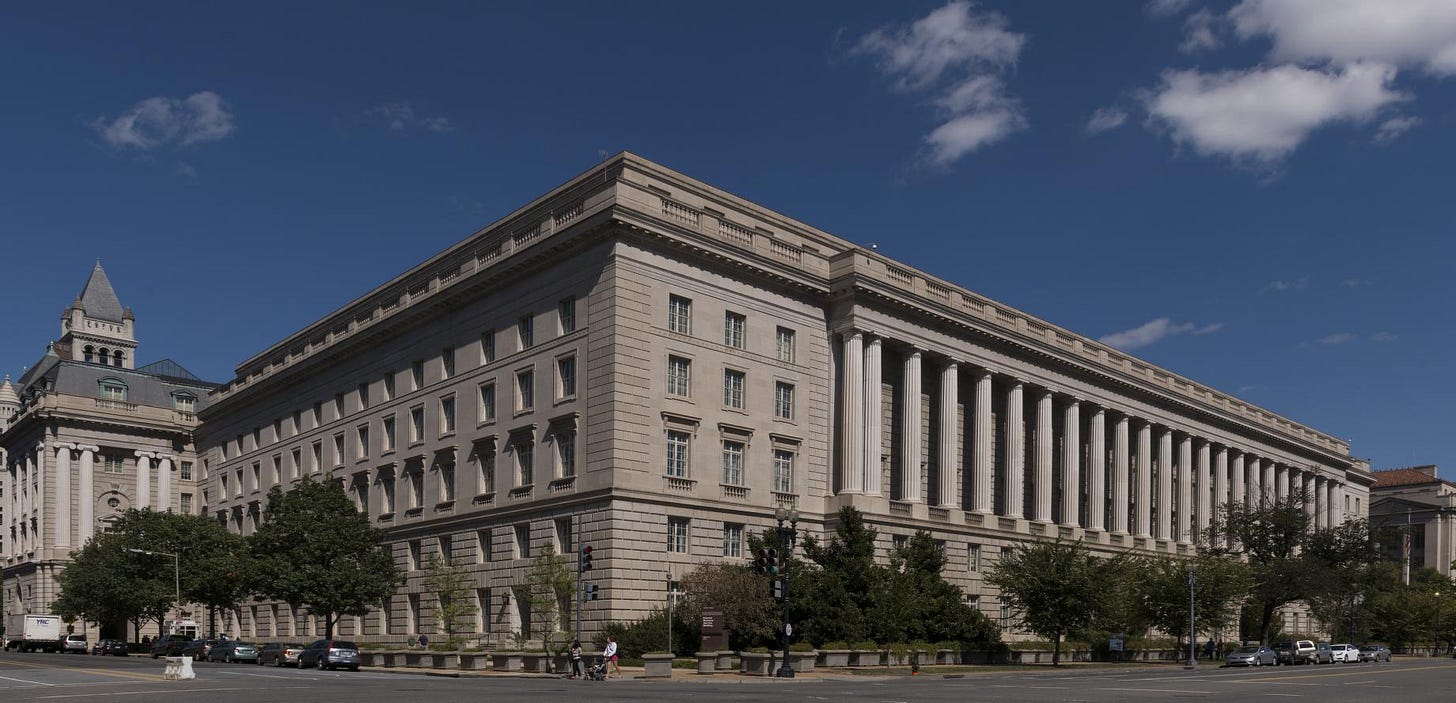Pushing Politicians From the Pulpit
Direct endorsements from church leaders now okay
The Spirit was clear that Sunday morning for Brandon Burden, the pastor at Kingdom Life Church. He told his congregation in a Dallas suburb that God was working through them to help defeat the mayor and return the country to its Christian roots.
“I got a candidate that God wants to win. I got a mayor that God wants to unseat,” Burden told his congregants in 2021. “God wants to shift the balance of power in our city.” By the end of his two-hour sermon that day, Burden had gone even further — declaring that his church had a God-given authority to choose lawmakers.
For more than 70 years, that kind of speech advocating for or against political candidates had put houses of worship at risk of losing their tax-exempt status. The relevant law — the Johnson Amendment — was rarely invoked, but the threat of it, and the potentially costly legal bills, kept many church leaders from using the pulpit to endorse specific political parties or candidates.
But last week, the IRS announced it would no longer be enforcing the Johnson Amendment — named after then-Senator and later-President Lyndon B. Johnson — against religious institutions.
The Johnson Amendment: a brief history
Churches have always been allowed to talk about political issues in general, organize voter-registration drives, and invite political candidates to speak. But the Johnson Amendment, a 1954 provision in the US tax code, barred 501(c)(3) nonprofit organizations, including churches, from endorsing or opposing political candidates by prohibiting them from “participat[ing]” or “interven[ing]” in “any political campaign on behalf of (or in opposition to) any candidate for public office." In other words, a religious group could say, “Vote for pro-life candidates” generally, but not “Vote for Candidate Bob” specifically.
Nonprofit expert Robert M. Penna says the motivation behind the Johnson Amendment was to limit nonprofits’ “influence on politics.” LBJ himself never publicly explained why he offered the amendment, but Penna notes that in 1954, two nonprofits in Texas — the Facts Forum, an anticommunist group, and the Committee for Constitutional government, which had been founded in opposition to the New Deal — opposed Johnson’s bid for reelection to the Senate. Prohibiting candidate endorsements by such groups was a way to prevent that from happening again.
Over the ensuing seven decades, there’s only ever been one publicly known instance when the IRS used the Johnson Amendment to revoke a church’s tax-exempt status, although more have been investigated without it resulting in revocation.
Branch Ministries ran full-page ads in USA Today and The Washington Times urging voters to reject Arkansas Governor Bill Clinton in his challenge to Republican President George H. W. Bush.
The ads warned, “Christian Beware. Do not put the economy ahead of the Ten Commandments,” and accused Clinton of violating scripture by supporting “abortion on demand,” homosexuality, and condom distribution in public schools. Clinton was, they claimed, “openly promoting policies that are in rebellion to God’s laws.”
The ensuing lengthy legal battle ended with a US appeals court siding with the IRS.
Trump targets Johnson with an executive order
On the campaign trail before the 2016 election, Donald Trump promised his conservative Christian supporters that he would change things. Speaking to religious leaders at a National Prayer Breakfast, Trump said, “I will get rid of and totally destroy the Johnson Amendment and allow our representatives of faith to speak freely and without fear of retribution.” The pledge thrilled many of those in attendance. One of them — Tony Perkins, head of the Family Research Council — called Trump’s intent “outstanding” and “right on target.”
In May 2017, Trump signed an executive order on religious freedom. One section directed the Treasury Department, which oversees the IRS, not to take action against churches or religious organizations for political speech.
The order said that the IRS was not allowed to “penalize individuals, churches, or religious organizations for expressing moral or political views from a religious perspective — so long as similar speech has not typically been considered political campaign activity in the past.” At a signing ceremony, Trump said, “You’re now in a position to say what you want to say. No one should be censoring sermons or targeting pastors.”
But the executive order was largely symbolic — even Justice Department attorneys said so in court. The Freedom From Religion Foundation sued, arguing that the order gave special treatment to religious groups and violated the First Amendment’s prohibition on the establishment of religion. The DOJ countered that the order didn’t create new rights or exemptions for churches. Instead, it simply told the government not to punish religious groups for political speech if it wouldn’t punish secular nonprofits for the same thing. A court eventually sided with the government and dismissed the suit.
But that left many evangelicals, who remain some of Donald Trump’s most loyal supporters and trusted advisers, unsatisfied. They didn’t want an executive order about the Johnson Amendment that was merely symbolic. Trump said he got an earful from them at an Easter event this spring.
Several pastors said, “Sir, I was targeted by the IRS, and the FBI came in, sir, and I’ve been going through Hell for years,” according to Trump.
One of the guests — Robert Jeffress, pastor of First Baptist Church in Dallas — described his interaction with Trump. “I told the President that our church was the subject of an IRS investigation launched under the Biden administration that spanned several years and cost hundreds of thousands of dollars due to complaints from the Freedom From Religion Foundation,” Jeffress said. He went on to note that the investigation was ultimately resolved in favor of his church, which did not lose its tax-free status.
The lawsuit that changed enforcement
Meanwhile, some churches were seeking a remedy through the courts. Last year, two Texas churches and an association of evangelical religious broadcasters filed a lawsuit against the IRS. They argued that churches should be free to endorse candidates without fear of losing their tax-exempt status.
The restriction, they claimed, violated their First Amendment rights to free speech and religious expression. They see political issues — such as abortion, religious freedom, and education — as deeply connected to their beliefs. If pastors couldn’t talk about candidates who aligned (or didn’t align) with those values, they felt silenced.
And now the IRS agrees with them. Last week, the agency and several religious groups released a proposed legal settlement (known as a “consent judgment”) to end the lawsuit. Both sides said churches should be allowed to talk about politics during services — even to support or oppose candidates — without losing their nonprofit status. These kinds of statements “between the house of worship and its congregation,” they argued, are like a “family discussion concerning candidates” and “do not run afoul of the Johnson Amendment as properly interpreted.”
The settlement still needs a judge’s approval in order to become binding, but it’s already in effect: the IRS announced that it has stopped enforcing the Johnson Amendment against churches that endorse political candidates. (It has not announced any similar change for other kinds of 501(c)(3) nonprofits — like charities, foundations, and educational groups — nor has it explained why the change applies only to churches.)
Churches still cannot make politics the main focus of what they do. Under tax laws, 501(c)(3) organizations exist to serve the public good by advancing religious, charitable, or educational goals. If a church were to start acting like a political action committee — for example by donating money to campaigns or coordinating with political parties and candidates — their political activities would no longer be incidental, like “family discussion.” But church leaders can now speak openly about political candidates during services or in church materials.
Looking ahead
If a judge doesn’t sign off on the proposed settlement, a future president could choose to undo the IRS’s new policy and once again prohibit churches from endorsing candidates. Congress could also repeal or rewrite the Johnson Amendment, although there has been no recent legislative push to do so.
The reaction to the IRS’s decision has been mixed — with some celebrating the moment they’ve been waiting for, and others more circumspect about what the future might hold.
Doug Pagitt, a pastor and executive director of Vote Common Good, noted that for years conservative pastors openly endorsed candidates without much pushback, while progressive leaders often refrained, unsure of the legal risks.“Conservative pastors who have been blatantly endorsing candidates regardless of the Johnson Amendment over the years created a disadvantage causing Democrats to step away from faith voters,” he said.
Pagitt welcomed the end of what he called a confusing and inconsistent standard: “You could talk about politics in the church gymnasium, but not in the sanctuary or from the pulpit.” (Discussions elsewhere in the church facility were considered casual conversation that did not put the church’s tax-exempt status at risk.)
Meanwhile, the National Council of Nonprofits is less enthusiastic about the IRS’s new approach. It said, “Charitable nonprofits are among the few remaining trusted spaces where people come together across differences to solve community problems, and undermining the law that protects their nonpartisanship could severely damage the integrity and effectiveness of the entire sector.”
And some churches say the IRS’s policy change makes no difference. The US Conference of Catholic Bishops said the new interpretation of the Johnson Amendment won’t alter the way it talks — or doesn’t talk — about politics. “The Church seeks to help Catholics form their conscience in the Gospel so they might discern which candidates and policies would advance the common good,” spokesperson Chieko Noguchi said. But “the Catholic Church maintains its stance of not endorsing or opposing political candidates.”
Still, it has the option now — along with every church in the country. And that fact alone signals a shift with national consequences.
Whether churches embrace this new freedom or stick to longstanding traditions, the line between the pulpit and the political stage has been redrawn. What happens next depends on more than just courts and Congress. It will play out in church bulletins, Sunday sermons, and ballot boxes — in how religious leaders choose to wield their voice now that the restraints have been removed.
Because if the IRS’s new approach holds, the next election season may not just be about who’s running. It could also be about who’s preaching.









I fear the rise of dark money filtering through churches, “tithes” in exchange for endorsements, more visiting politicians “preaching,” and spiritual abuse in the form of “this candidate is God’s will.” Nothing good here, just more partisan rhetoric that will divide.
This piece hits home for me. From personal experience, I’ve seen how clergy endorsements can increase division. Church should be a place where all are welcome to learn and grow in faith. But when a priest or pastor endorses a candidate, it risks alienating those who vote differently or inviting judgment from fellow parishioners.
During COVID, some priests in my area refused to wear masks or enforce masking. It became a political statement and made me feel like they weren’t living out Jesus’ mission of caring for others. To this day, I feel unwelcome in my church.